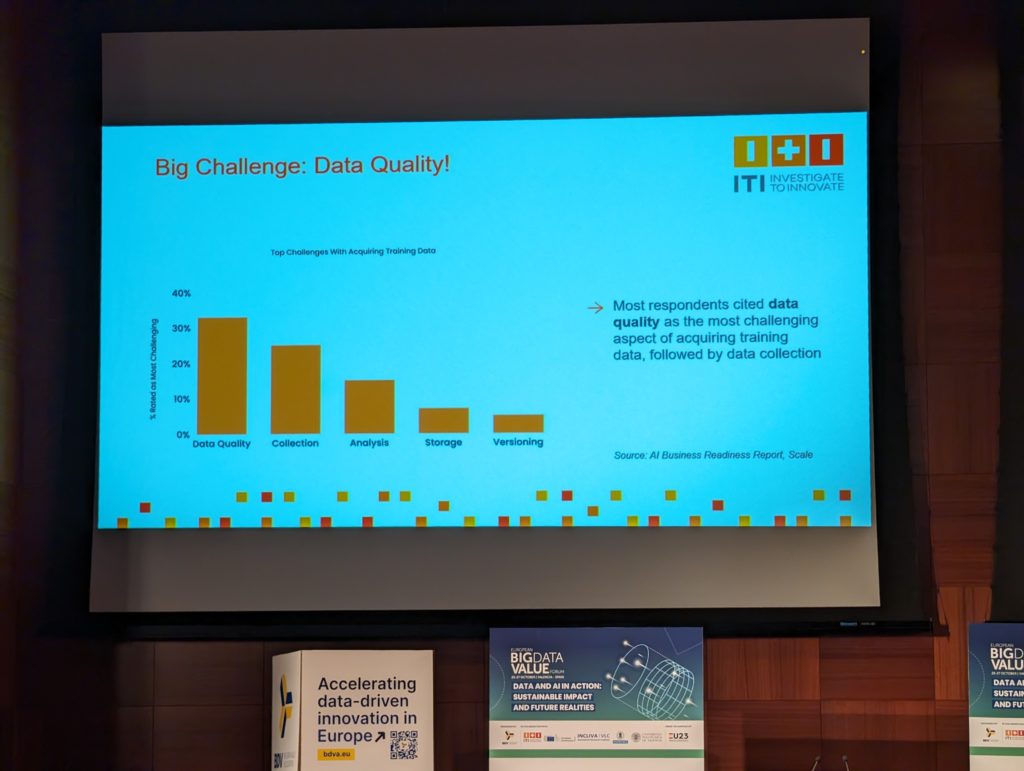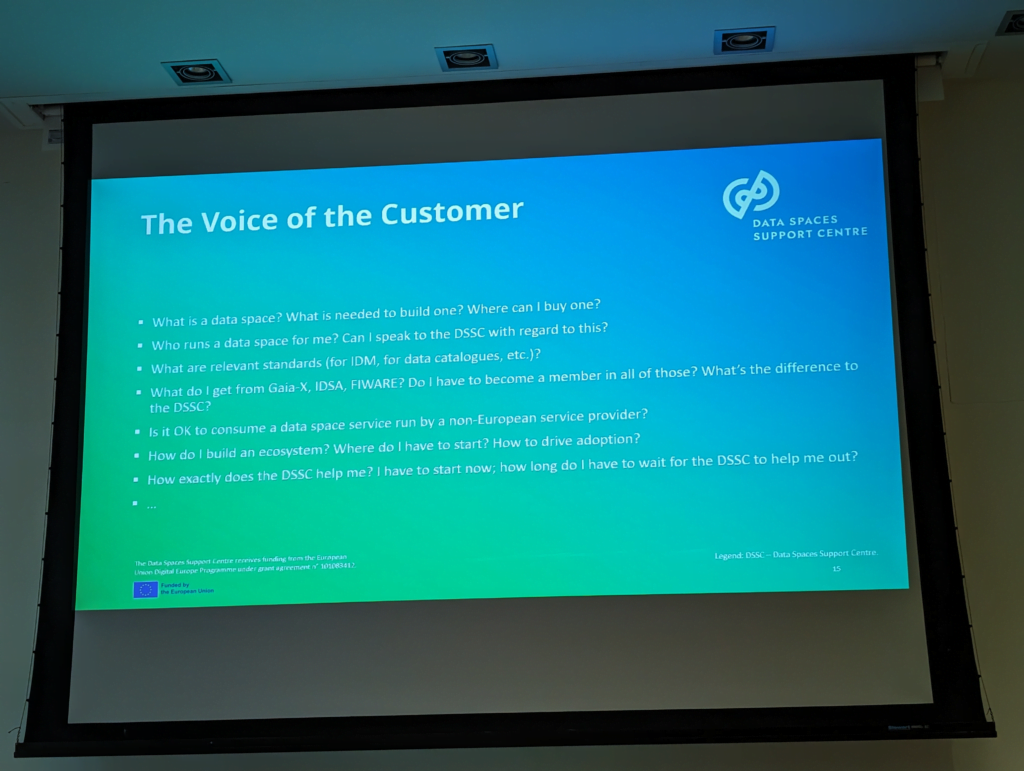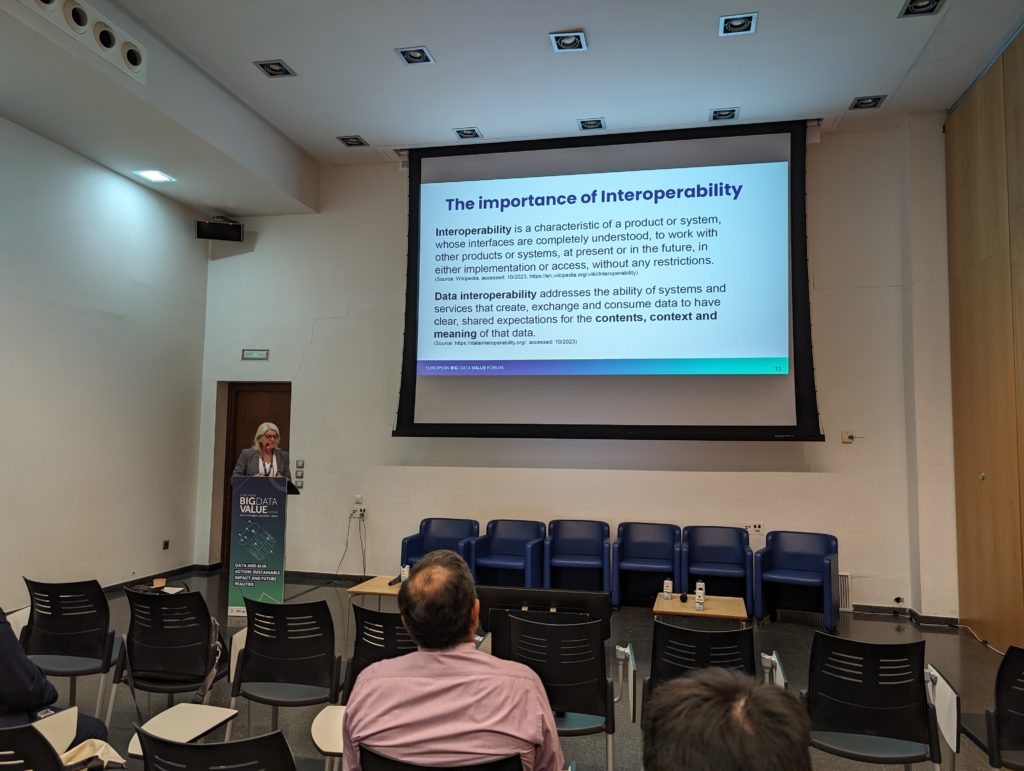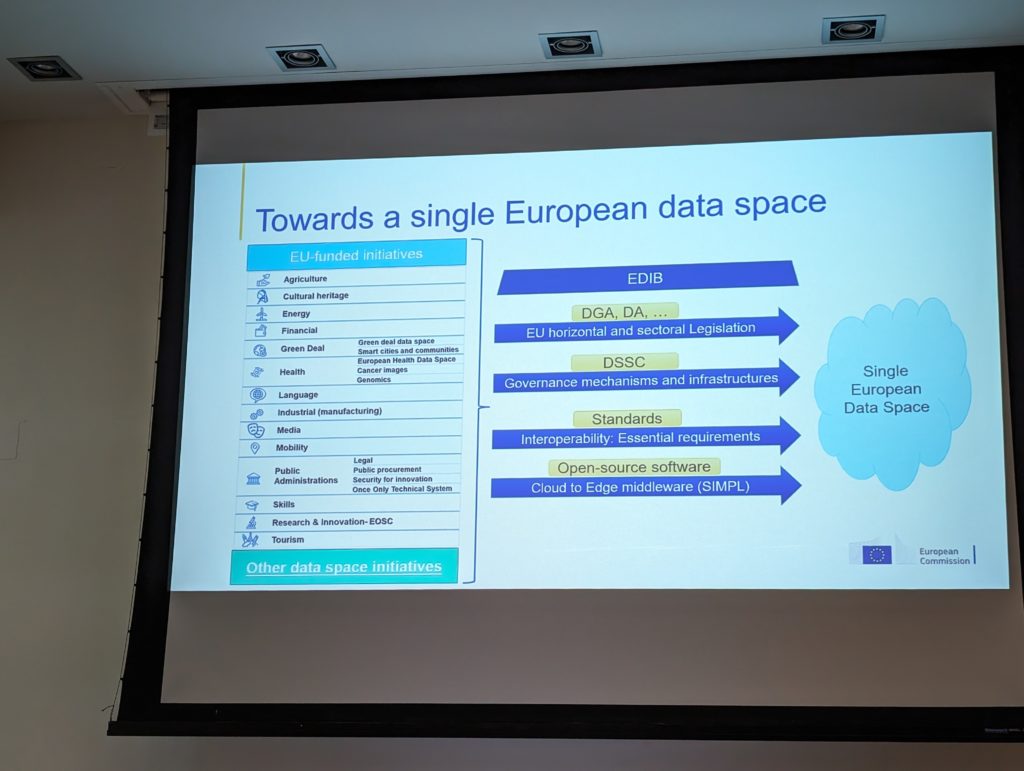
Capturing the True Value of European Data: A Review of the Big Data Value Forum 2023
Big challenges require bold innovations. The way we collect, share, and use data is no exception to that. Currently, most data is not re-used and does not contribute to improving society. The European approach to data governance and data usage, and the implementation of that approach in the Common European Data Spaces such as the Green Deal Data Space, is part of this new paradigm.
Naturally, such a major change requires a lot of discussion between stakeholders, this time at the European Big Data Value Forum in Valencia.
 A person carrying a messenger bag is seen from the back, walking towards a big, vaguely onion-shaped building largely made up of glass panels. On the front of the building is a large green banner that reads: "Welcome! European Big Data Value Forum, 25-27 October, Valencia - Spain. Data and AI in action: Sustainable impact and future realities", with a string of organiser logos underneath.[/caption]
A person carrying a messenger bag is seen from the back, walking towards a big, vaguely onion-shaped building largely made up of glass panels. On the front of the building is a large green banner that reads: "Welcome! European Big Data Value Forum, 25-27 October, Valencia - Spain. Data and AI in action: Sustainable impact and future realities", with a string of organiser logos underneath.[/caption]
Data Quality Over Data Quantity
Unregulated markets have failed to make optimal use of data. Valuable data is often either locked away by gatekeepers, such as large social media platforms, or not shared by data holders or subjects. This impacts all sectors and initiatives, reducing competitiveness for businesses, research opportunities for scientists, and benefits for citizens.

It is time to get over the obsession to need to collect, aggregate, and control everything possible, so we can centralise value capture. At a European level, this spirit is visible in current legislation as well as in new technology and research projects.
Where GDPR already does a lot to protect individuals’ data on the legislative front, Europe is also building powerful computing capabilities and very large AI models, while still looking at other solutions applicable to many problems with real-life impact.
People Over Unbounded Technological Change
People change slowly, perhaps even more so than legislation. The new technologies we build must be designed in a way that ensure they have a positive impact on peoples' lives.
All too often, technology is ahead of legislation. This opens the door to exploitation by those who seek to profit before the law can catch up to them, as well as unintentional implementation errors that lead to little benefit and a lot of extra work for those who have the bravery to try something new. In a worst-case scenario, it can even severely damage the reputation of legitimate technological advances.

However, we still lack many of the concrete, relatable narratives that will ultimately shape responsible legislation as well as public understanding of newer technologies, such as data spaces. Stories that describe a concrete problem and the approach taken to solve it, even the struggles faced along the way. Many of our presentations and discussions about these subjects are still very abstract.
The Language of Change
Currently, most of the language used at the Forum was focused on the consolidation of concepts within our own data communities. There is still uncertainty about the impact of regulations, such as the Data Governance Act. Who is affected? In what way? How are some of the terms to be interpreted? This type of uncertainty impacts our ability to define and test sustainable business models.
Let’s take a popular word at any data-related summit: interoperability.

There is a set expectation that the mere existence of data spaces and other data ecosystems will automatically improve data interoperability, at the access level, metadata level, and on the data level. However, the exact responsibilities and processes for that have yet to be defined.
While that lack of definition can certainly be a point of frustration for those of us who are occasionally cut by the bleeding edge of technology, there is a very distinct positive to be seen here: We are discussing these issues. Ahead of the technology being implemented.

To fulfil the expectations that stakeholders share means a lot of hard work for many different people and organisations. The main challenge comes with the shift in paradigm as to what can be done with data by whom. Data holders and data users both have to build and maintain trust and working governance structures.
However, by working on these pain points early, we can develop solutions while we can still shape the implementation of new technology, rather than running after the facts.
At wetransform, we have been working on these challenges of making data more accessible and useful for many years, and we have been working on IDSA compliant data spaces since 2020.
Want to learn more about our approach to data spaces? Read on here!


